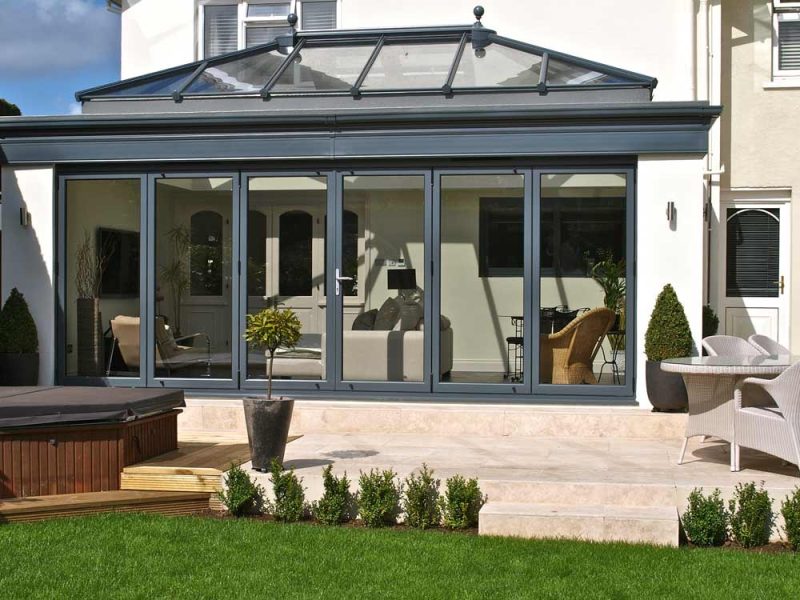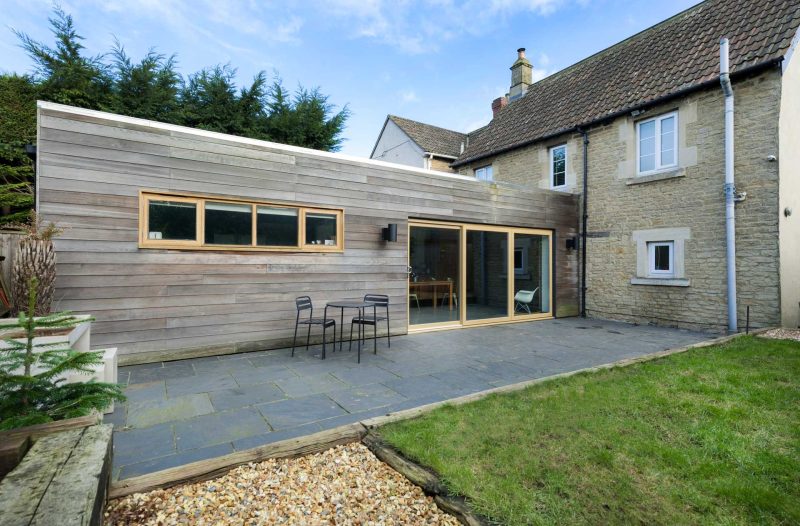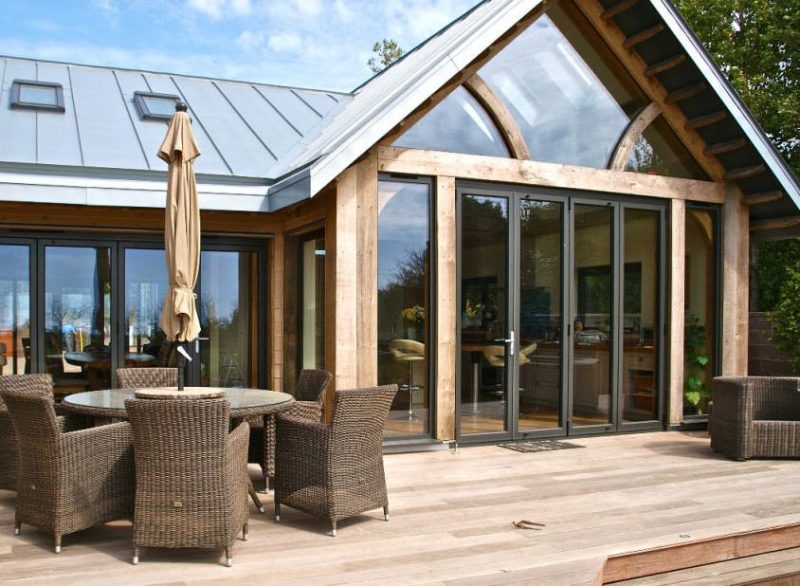
Quality You Can Trust
- Energy saving
- Free quotations
- After sales care
- 10-year guarantee
- Planning regulations
- Building regulations
- Product design
- Increased security
How can Nolan help you today?
Get in touch to arrange your free design appointment or visit one of our showrooms to see our range of products on display.
Book an AppointmentWe offer both aluminium and uPVC windows and doors. Both of these materials have their pros and cons, depending on your preferences and the architecture of your property. Read on to learn some of the key differences between these two popular materials.
The Benefits Of uPVC
uPVC windows and doors are some of the most popular installations for customers in the area. This material offers a range of benefits including energy efficiency, security, durability and acoustic insulation. These windows and doors will look as good as they perform thanks to the long lasting and low maintenance material.
The Benefits Of Aluminium
The key appeal of aluminium is how inherently durable it is. These windows and doors can withstand harsh weather conditions. These robust profiles will protect properties from the elements and unwelcome intruders.
What Are The Differences Between uPVC and Aluminium
The Framework
Because aluminium is so robust, we can craft thin frames without compromising on the structural integrity. The narrow framework allows more of the window to be made up of glass. We can achieve modern patio and bifold doors, thanks to the slimmer aluminium frames. uPVC windows will need to be a little thicker, although we can still install expansive panes of glazing.
Added Insulation
uPVC is a naturally warm material, and our windows and doors are crafted using multi-chambered frames. This offers enhanced levels of insulation, which could help reduce bills and minimise a property's carbon footprint. Windows and doors crafted using uPVC are generally better thermal insulators than aluminium.
Aluminium had a negative reputation in regard to insulation and condensation. Modern aluminium profiles have rectified the issue, thanks to the high grade materials and thermal breaks. These thermal breaks will act like a barrier between the cold outside world and a warm home.
Which Will Last Longer
Our windows and doors are crafted with longevity in mind. Both materials are long lasting and hard wearing, requiring minimal maintenance to stay looking as good as new.

uPVC is expected to last around 15 to 20 years with minimal upkeep. They will also not lose their colour or fade during their lifespan. uPVC framework will not need to be painted or stained and can be easily cleaned with soap and water.
Aluminium windows are renowned for their durability and are expected to last between 30 and 35 years. This material won’t warp or twist, meaning these windows and doors will continue to operate smoothly for many years to come.
Will uPVC or Aluminium Protect My Home?
Both materials are popular during home improvement projects because they can protect any residential or commercial area. We understand how important security is to a customer, which is why that is considered during the entire design process.Aluminium is an inherently robust and secure material, making it a strong deterrent against modern burglaries. These windows and doors can be equipped with multi point locking systems and cutting edge security upgrades.
uPVC is also a durable material that is resistant to rot and corrosion. It does not fade or warp over time, making it a long-lasting investment. These quality profiles are paired with sturdy hardware and robust furniture, for customer peace of mind.
If you live in a coastal area, uPVC profiles are the better investment. Although powder coated aluminium windows and doors are rust free and can withstand the elements, the uPVC framework performs better in the harsh conditions of many coastal areas.
What Are The Environment Benefits?

We understand that sustainability is important to a customer, which is why uPVC and aluminium are both eco friendly materials. These sustainable profiles are paired with double or triple glazing, helping to improve the eco credentials of any property in the local area.
Aluminium is a resource that is 100% recyclable. Aluminium windows and doors can be recycled multiple times without losing their inherent properties. The aluminium recycling process only uses 5% of the energy needed to create the initial metal.
uPVC is also a recyclable material, which means it can be reused after it reaches the end of its long life. Choosing uPVC or aluminium windows and doors can contribute to reducing waste and promoting sustainability.
Which Is Better Priced?
uPVC is the cheaper of the two materials. If you want to update a property but are on a strict budget, then uPVC profiles are the most value for money. Aluminium windows and doors will last longer, making them a long term investment for a building.
Aluminium frames may come with a slightly higher price tag, but they are still more cost efficient than timber alternatives.
Use our free online quoting engine to get a price tailored to your double glazing installation project. For more information on the differences between aluminium and uPVC, get in touch with our team today.
Ultimately, most materials deliver on functionality and aesthetics. Window prices aside, there is little difference in terms of their performance. Simply consider the look you want to achieve and your budget, before choosing your new home improvement project.
- Celebrating the Launch of Endurance Aluminium – A Bold New Venture from Endurance Doors - 21 January 2025
- More Than A Door With Endurance - 22 November 2024
- The Ultimate Guide to Triple Glazing: Features, Benefits and Installation - 15 October 2024
